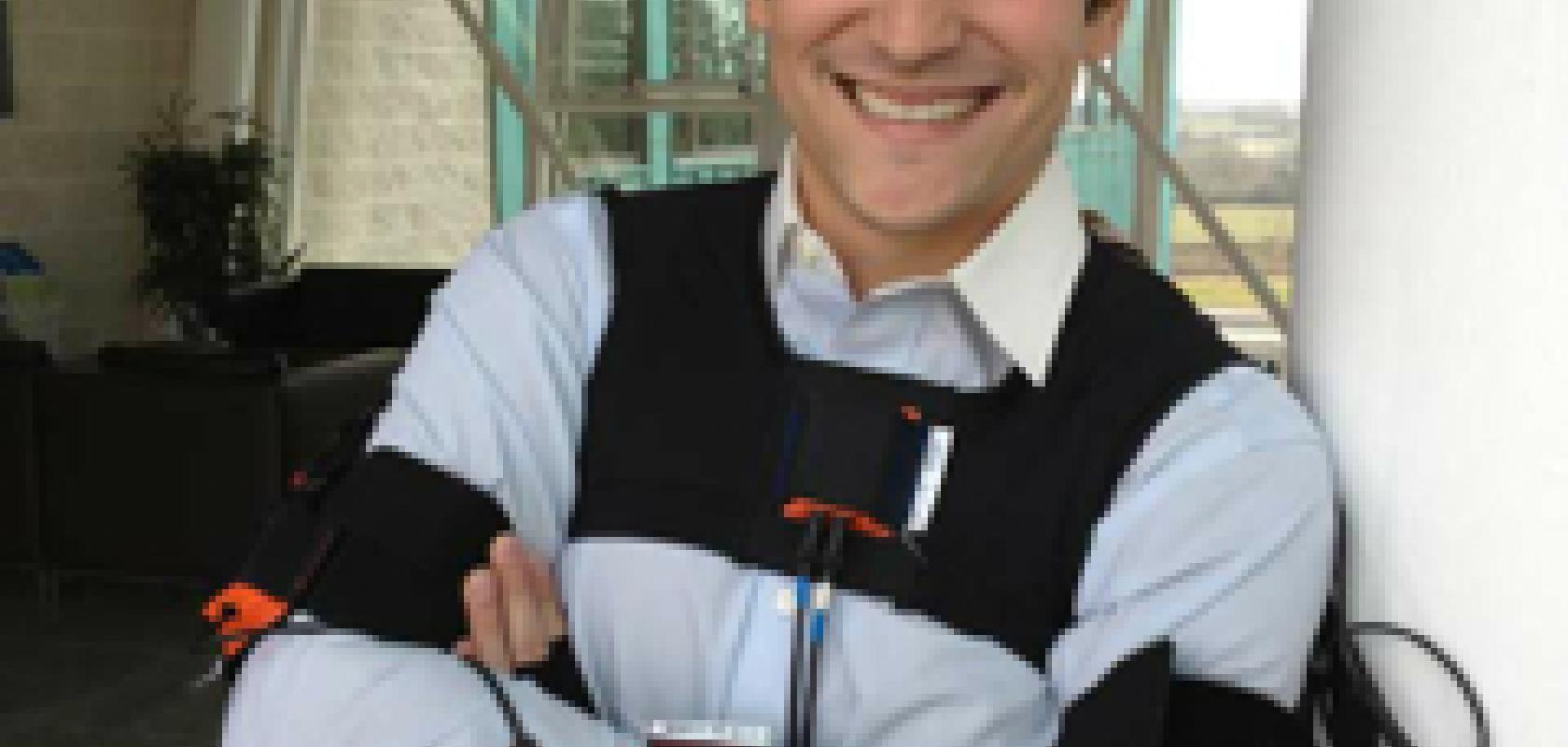A student is to use cameras to study human emotions after successfully using the system to provide 3D feedback on weightlifting performance.
Eduardo Velloso, a student at Lancaster University’s School of Computing and Communications, presented his innovative weightlifting feedback system to the Augmented Human Conference in Stuttgart, an international conference that highlights new scientific technologies geared at increasing human capabilities.
The computerised kit, the first of its kind, provides intricate information on a weightlifter’s performance ensuring, for the first time, that advice on technique is instantly and accurately monitored and relayed in real time. The system uses a Microsoft Kinect depth camera to monitor 3D movement and an LCD display to indicate if the weightlifter is undertaking the moves in the right way, position and speed. Tests showed a significant improvement in weightlifting performance.
'For most of my first year I worked on the weightlifting project to analyse movement and provide sophisticated feedback,' said Velloso. 'We picked weightlifting because it is an activity with specific movement.'
Now Velloso, a computer engineering graduate of the Pontifical Catholic University of Rio de Janeiro, is planning to tackle another project with the help of a faculty scholarship.
'I have moved on from weightlifting but will still be analysing movement,' he said. 'By tracking a person’s movement I want to understand the emotions the person is experiencing. This is in its very early stages. My goal is to deduce affective states of mind from body language. This involves psychological behavioural research and affective computing. It’s a very interesting topic. Computers understanding emotions will be amazing.
'Previous work in emotion recognition has focused on facial and voice recognition. We are now trying to do this by looking as users’ bodily expressions. We could use this method in systems to help users in improving their body language for specific situations such as a job interviews or public speaking.'


